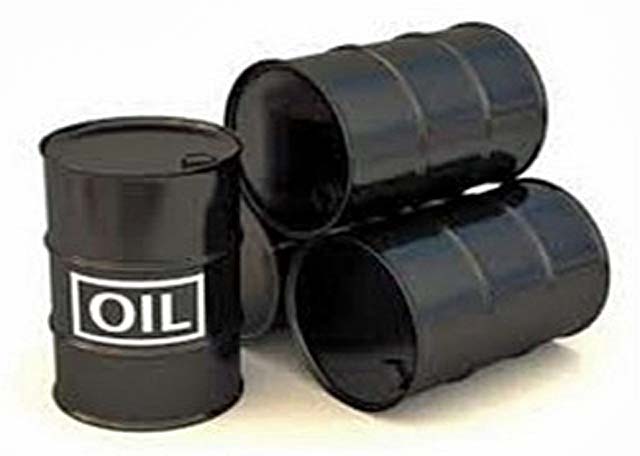3 January 2013 Questions Cloud Lake Megantic
Crude Oil Test Data Ottawa Ontario - Why did it take so long to determine that Bakken crude is especially explosive, given that Canada's Transportation Safety Board (TSB) six months ago analyzed samples drawn from the few tank cars that survived the 6 Jul 2013 explosion of a Montreal Maine & Atlantic (MMA) oil train at Lake Megantic, Quebec?
An even bigger question is why the Canadian investigatory board continues to suppress the test data.
The answer, some experts are suggesting, may lie within Canada's petro-state politics, dominated by a governing party committed to maximum extraction and export of the country's oil resources.
Calls for a judicial inquiry independent of government influence are emerging from public frustration at the perceived secrecy surrounding Canadian railway regulation and accident investigation.
Freedom-of-information adjudicators have accused Transport Canada of secrecy.
The country's Auditor General is questioning the government agency's responsiveness and competence.
Academic safety experts are now asking whether Transport Canada, or the TSB, are up to the political challenge of identifying and fixing the causes of the crude oil explosion that killed 47 people at Lake Megantic six months ago.
The finger of blame is shifting toward Transport Canada.
The fact that the agency leads the criminal aspect of the investigation is hardly reassuring, say critics.
Will Transport Canada find itself to be culpable?
Chemical engineer Jean-Paul Lacoursiere was the first scholar to call for a judicial inquiry from his vantage point as Associate Professor of Risk Analysis at the University of Sherbrooke, not far from Lake Megantic, in Quebec's bucolic Eastern Townships.
Lacoursiere's argument for an inquiry independent of the regulator is widely quoted by Canadian media, but so far has been ignored by the government.
Mark Winfield, Associate Professor of Environmental Studies at York University in Toronto, and a respected authority in public-safety regulation, echoed distrust of government self-investigation.
Transport Canada, Winfield wrote in The Gazette of Montreal, is in no position to expose its own responsibilities for the disaster:
"So far, the federal government has been carefully managing its responses to each incremental revelation of Transport Canada's failings. This may be politically expedient in terms of underplaying the colossal scale of the regulatory failure in the Lake Megantic case. It has also had the effect of limiting the scope of the government's responses and the extent to which they interfere with railway operations, particularly the movement of oil by rail."
Only a judicial investigation, with powers to seize evidence and compel testimony, can reveal essential truths, wrote Winfield: "The range of factors at work in the Lake Megantic case requires a comprehensive review, free of the possibility of political interference, and with full investigative powers."
So far, Canadian investigators and regulators have confined their pronouncements to blaming MMA and its employees for allowing the doomed oil train to slip its brakes and roll unattended into the resort town, where it jumped the track, causing tank cars to accordion and set off a chain reaction of explosions.
That the railway's carelessness in the handling of the 72-car unit train was the proximate cause of the catastrophe is uncontested.
But the runaway and derailment were not responsible for the deaths and destruction.
That was the work of the exploding crude, mis-labelled as merely "flammable."
Half a year after Lake Megantic, the Conservative government of Prime Minister Stephen Harper has announced no enforcement action to end what many observers say is the disregard of oil loaders, brokers, and buyers, of their obligations to accurately inform railroads about the hazards of the cargo they proffer for carriage, and the refusal of Canada's autonomous accident investigators to divulge the chemical composition of the Bakken crude oil that shocked railroad and emergency response professionals by exploding rather than simply burning when the runaway train derailed.
It is now broadly known that at least some operators in the oil extraction, shipping, and refining sectors, knew in advance of the Lake Megantic disaster that crude oil from North Dakota was nearly as explosive as gasoline.
Terminal operators, brokers, and importers, including Canada's Irving Oil, allowed the extra-volatile oil to be mis-classified for rail transportation as a low-risk crude, according to documents assembled by investigators, journalists, and legal counsel for Lake Megantic victims.
Since Lake Megantic, two more trains carrying Bakken oil have exploded upon derailment, one in Alabama in November, and the latest last week in North Dakota, where tank cars of freshly loaded crude erupted into fireballs, despite arctic temperatures.
The latest incident dispelled any lingering notions that the Lake Megantic event was uniquely the result of an unusual batch of crude oil sloshing its way across half-a-continent under a hot summer sun.
It now seems obvious that there is something inherently explosive about even the freshest crude in the coldest possible environment.
The positive consequence of the Alabama and North Dakota incidents is that the U.S. National Transportation Safety Board now has events entirely within its own jurisdiction to investigate.
The refusal of Canadian investigators to release Lake Megantic test data is apparent in TSB Strategic Communications Manager Rox-Anne D'Aoust's response to Railway Age's 16 Dec 2013 request for test results: "The TSB investigation is ongoing and it would be irresponsible to release information piecemeal."
This contradicts TSB's initial commitment to promptly advise railroads of any continuing danger to trains and crews: "If along the way we discover urgent safety issues, we will act quickly to make them known, so that Transport Canada and the rail industry can take immediate action," TSB Chair Wendy Tadros said in Lake Megantic six days after the catastrophe.
Two days later, TSB chief investigator Don Ross told this writer that the contents of the surviving tank cars were being sampled for urgent analysis.
Ross said he was concerned that "there could be another accident like this one at another location."
Then, literally overnight, a curtain of silence descended over the testing.
Asked the next day to simply confirm for attribution that analysis of the cargo was under way, TSB's D'Aoust refused.
She said that TSB would deny that any testing was taking place or that the oil was even under scrutiny: "We would deny that we are investigating this."
Her reason was that revealing the fact that the oil was being tested would "be inflammatory and compromise a parallel criminal investigation."
Half a year later, following numerous news reports of raids by investigators on MMA offices and the Irving Oil refinery that imported the oil, TSB maintains its refusal to reveal just what was in the oil.
At this point, there is no way to know for certain whether understanding the chemistry of the Lake Megantic oil could have prevented the subsequent explosions in Alabama and North Dakota, but it surely would have made the risks better understood by oil loaders, train operators, first responders, and trackside citizens.
David Thomas.    |


